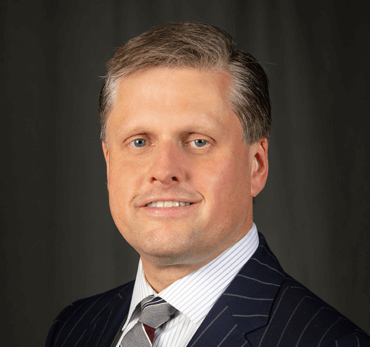A federal jury in Detroit awarded Austin-based Versata Software $105 million Wednesday in a trade secret misappropriation and breach of contract case against Ford Motor Company.
An eight-person jury in the Eastern District of Michigan listened to 15 days of testimony and arguments and then deliberated nearly 10 hours before ruling Wednesday that Ford misused Versata’s patented software system in order to avoid having to pay the Austin company tens of millions of dollars to use its licensed technology.
The nine-digit verdict is also the largest courtroom victory for Houston-based Mitby Pacholder Johnson, a three-partner litigation boutique formed earlier this year when Steve Mitby and Debbie Pacholder – two former partners at Ahmad Zavitsanos Anaipakos in 2019 – joined forces with Peak Completion Technologies General Counsel Tim Johnson.

“This is a huge win for Versata and a vindication of one of the most innovative software products of all time,” Mitby said in an interview with The Texas Lawbook Wednesday. He said it is the largest courtroom victory of his career.
“This is also a big win for our new firm. Very few people thought we could beat Ford in its hometown, especially when jurors had to walk by the Ford Field NFL stadium every day to enter the courthouse,” Mitby (pictured right) said. “Fewer still thought we could win a verdict this massive against Detroit’s hometown hero, Ford. And no one thought we could annihilate Ford’s very well-prepared witnesses under cross-examination.”
Early Thursday, Ford released the following statement to The Lawbook: “While we respect the jury’s decision, we believe the facts and the law do not support this outcome. Ford will appeal the verdict.”
The litigation started seven years ago when Ford filed a declaratory judgement action against Versata seeking a court ruling that the carmaker had not misappropriated trade secrets from Versata’s software.
Ford started using Versata’s software in October 1998 and continued to use it until 2015. Court records show that Versata’s Automotive Configuration Manager software, or ACM, enabled Ford to “configure” cars and trucks from billions of combinations of parts, features and options. The software solves complex mathematical, logical and logistical problems involved in designing and configuring vehicles.
“Automotive configuration software helps manufacturers design vehicles by making sure the thousands of features in a vehicle work together seamlessly,” Mitby said. “Versata’s software saved Ford hundreds of millions – if not billions – of dollars by automating the vehicle configuration process and reducing costly errors that lead to misbuilds, warranty costs and recalls.”
Versata hired Mitby, who was then a partner at AZA in Houston and had won an $11 million settlement for the company the year before against Equifax, to countersue Ford.
In its complaint, Versata accused Ford of stealing its trade secrets by having some of its key engineers – who had worked with ACM – create a replacement software system called “Product Definition and Offer.” Ford argued that PDO used “entirely different technologies” from ACM and that the carmaker implemented a “Chinese wall” to protect Versata’s trade secrets.
Versata, according to court documents, pointed out that 26 Ford employees who worked with ACM also worked to develop PDO.
“The judge took a very conservative view of damages and limited our damages to a reasonable royalty based on prior licensing history, even though trade secret damages often involve disgorgement of the benefits the defendant received,” Mitby said.
Mitby said the litigation was hard fought and that Ford’s legal team, which included Jim Feeney at Dykema and John LeRoy and Tom Lewry of Brooks Kushman, presented a strong defense for their client.
Prominent Winston & Strawn partner Dan Webb, a former federal prosecutor and lawyer for Phillip Morris in the Texas tobacco litigation in 1997, was co-counsel with Mitby representing Versata.
“At trial, the key evidence was highly technical and it was a huge challenge to boil down this difficult evidence for a jury,” Mitby said. “I handled the direct examinations of both the lead inventor of ACM and the technical expert. I was concerned that the jury would fall asleep, but we enlivened the presentation to the point where they listened intently throughout and took notes. This required a full multimedia presentation, which we carefully prepared in advance with visuals and animations to support the most important evidence.”
Mitby said he cross-examined Ford’s main witnesses, including its corporate representative and its expert witness.
“I did a very careful review of their prior statements, emails and depositions and came up with a strategy to discredit both witnesses,” he said. “The result – which entailed several hours of cross-examination – was so successful that Ford never mentioned its expert in closing argument and referred to its corporate representative minimally. I took a very measured approach, not wanting to appear bullying while insisting on answers to my questions.”
